Imagine…with just “one weird trick,” you could boost a single hormone in your body and…
- Lose fat and gain muscle…without even setting foot in a gym
- Feel confident, strong, and assertive
- Skyrocket your energy levels and mood
- Look and feel a decade younger
- Have earth-shattering sex
- Sleep like a baby
I’ll stop there because if you’re reading this article, this pitch probably sounds familiar.
It’s a short list of the many promises made by testosterone peddlers on the Internet and late-night TV infomercials.
They make it sound as if increasing your testosterone levels will damn near give you superpowers, and that it’s as easy as popping a few pills every day.
And boy oh boy do they sell a lot of pills.
You see, testosterone is on a lot of people’s lips these days.
Testosterone replacement therapy (TRT) has seen a meteoric rise in popularity, “testosterone boosters” are selling like hotcakes, and steroid use becoming more and more prevalent.
There are many unanswered questions, though.
How much does testosterone affect muscle growth and fat loss? How do you know if you have high or low T levels? How much can you affect them naturally through diet, exercise, and supplementation, and what can you expect in terms of results?
Well, we’re going to cover all that and more in this article. By the end, you’re going to know more about testosterone than most people ever will, including how to optimize your testosterone levels naturally and safely.
So, let’s start with a basic question that many people can’t really answer…
Table of Contents
+
Want to listen to more stuff like this? Check out my podcast!
What Is a Hormone?
Most people could tell you that testosterone is a hormone, but few could explain what a hormone is. So let’s start there.
A hormone is a chemical the body produces to control and regulate the activity of cells and organs.
Hormones play a critical part in every bodily function, including growth, digestion, metabolism, reproduction, and even mood.
Think of them as “messenger molecules” that give your cells and organs instructions. For example, insulin is a hormone that causes cells to absorb glucose from the blood and use it for energy.
[Read: How Insulin Really Works: It Causes Fat Storage…But Doesn’t Make You Fat]
What Is Testosterone?
Testosterone is a hormone that’s mainly produced in the testicles and the ovaries.
Because it’s the most important male sex hormone (androgen), men generally have much higher testosterone levels than women.
And those testosterone levels affect much of what goes on in the body, including…
- Muscle and bone strength
- Production of red blood cells
- Sex drive
- Production of sperm
- Energy levels and mood
Testosterone’s effects are easy to see—the more testosterone in a body, the more “manly” it looks, sounds, and functions.
(And on the flip side, the more of the female hormone estrogen there is, the more “womanly” the body will be.)
Accordingly, when testosterone levels aren’t as high as they should be, you can experience various side effects like…
- Low sex drive
- Erectile dysfunction
- Low sperm count
- Sleep problems
- Loss of muscle and strength
- Fat gain
- Brain fog
- Depression
Clearly, there are plenty of good reasons to pay attention to our testosterone levels and do whatever we can to keep them in a normal range.
But what’s a normal range?
What Are Normal Testosterone Levels?

Did you know that you can have symptoms of low testosterone despite your testosterone levels coming in around normal?
The reason for this has to do with the difference between testosterone and free testosterone.
You see, not all of the testosterone produced by your body is available for use.
Most of what gets made binds to two proteins–albumin and sex hormone binding globulin (SHBG)–and most of these “bound” hormones can’t break free from the proteins.
Thus, testosterone levels can be normal or even high but due to high albumin and/or SHBG levels, free testosterone levels can be low and produce symptoms of low testosterone.
Fortunately, a simple blood test can measure levels of both total and free testosterone, which are usually expressed in terms of nanograms per deciliter of blood, or ng/dL.
(A nanogram is a billionth of a gram, and a deciliter is one-tenth of a liter.)
Generally, the normal ranges of testosterone in men are:
- 270 to 1,070 ng/dL total testosterone, with an average of about 679 ng/dL
- 9 to 30 ng/dL free testosterone (2 to 3% of total testosterone levels is normal)
And in women:
- 15 to 70 ng/dL total testosterone
- 1 to 5 picograms/dL free testosterone (again, 2 to 3% of total T is normal)
As you can tell by the wide ranges, some people’s bodies naturally produce far more testosterone than others’.
What Are Low Testosterone Levels?
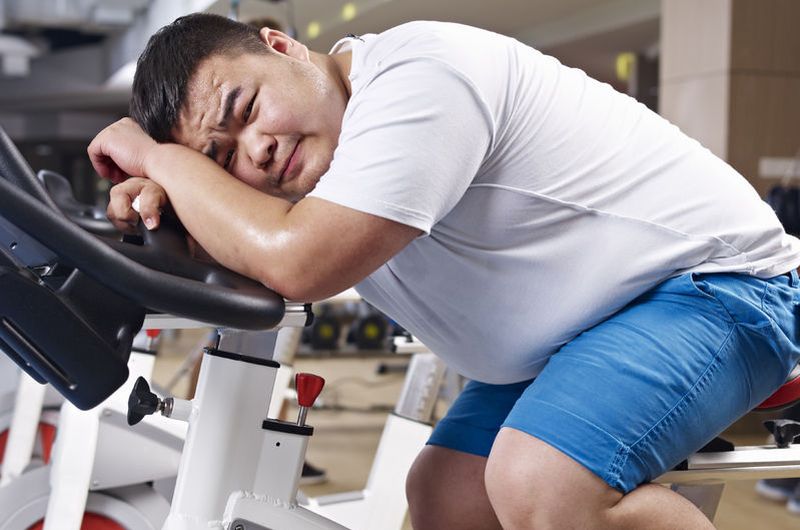
Because the range of normal testosterone levels is so large, what is good for one person can low for another.
That’s why you have to look at more than just testosterone and free testosterone levels when doing hormone testing.
You also need to check for symptoms of low testosterone, which commonly include:
- Sadness
- Reduced energy
- Decreased strength
- A decline in the ability to play sports
- A decline in work performance
For example, while a middle-aged man might not experience any symptoms of low T at 350 ng/dL, a man under 40 probably would.
This is reflected in research that shows that in men younger than 40, the likelihood of symptoms of low testosterone rises when total testosterone levels fall below 400 ng/dL.
Furthermore, studies show that in men from ages 40 to 90, symptoms of low testosterone tend to set in when total testosterone levels are below 300 ng/dL.
The symptoms in men 40+ are similar to those for younger men but also include:
- Less physical endurance
- Erectile dysfunction
- Reduced libido
- A tendency to fall asleep after dinner
As you can see, overall quality of life is heavily impaired by a testosterone deficiency, which is why some people are willing to go to great lengths to avoid it.
How Much Does Testosterone Help With Muscle Growth?
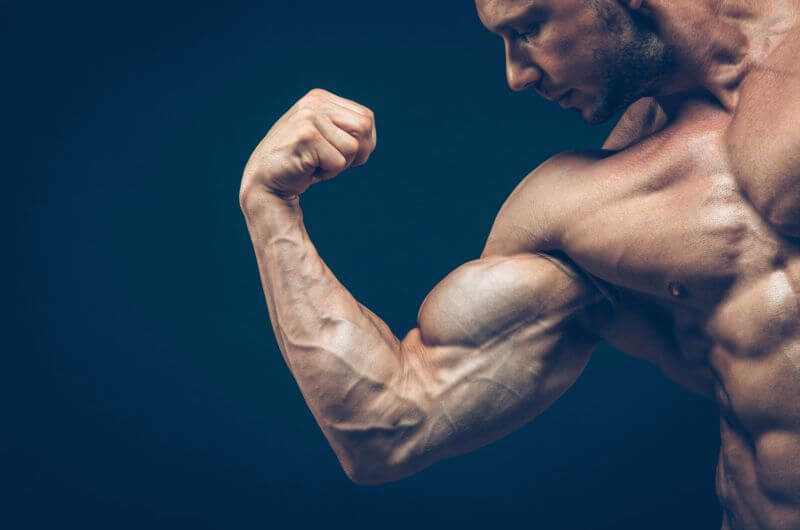
Now that we have our “testosterone 101” under our belts, let’s get to the real reason you’re probably here:
Most gym-goers think that testosterone is a major determinant of how quickly we can build muscle and lose fat.
They’re right.
Testosterone is the primary hormonal driver of muscle growth.
[Read: The Best Way to Stimulate Muscle Hypertrophy (Build Muscle)]
T’s muscle-building effects are so dramatic that one study conducted by scientists at the Charles R. Drew University of Medicine and Science found that subjects who were administered testosterone injections gained a significant amount muscle and lost fat…without even exercising.
Thus, it would seem to be a safe bet that the higher our testosterone levels are, the bigger and leaner we’ll be, right?
Well, it’s not that simple.
That assumption is true if we’re talking about shooting (literally) your T levels through the roof with steroids, but here’s what most gym-goers don’t know:
The fluctuation of testosterone levels within the normal range has very little impact on muscle growth and fat loss.
That is, raising your testosterone levels won’t confer significant body composition benefits until you exceed the physiological normal range, and that can only be accomplished with exogenous (introduced into the body, not produced by it) hormones.
We can find ample evidence of this in the literature.
For example, a study conducted at McMaster University investigated whether the variance in hormonal responses to weightlifting affects muscle and strength gains.
The subjects—young resistance-trained men—did five weightlifting workouts a week and followed a standard high-protein “bodybuilding diet.”
After twelve weeks, scientists found that participants experienced vastly different hormonal reactions to the workouts, but these differences had no significant effect on muscle growth or strength gains.
In other words, there was no meaningful difference between people who experienced dramatic spikes in anabolic hormones during and after training and those who experienced more muted reactions.
Another study worth mentioning was conducted by scientists at the Charles R. Drew University of Medicine and Science.
Synthetic testosterone and testosterone suppressing drugs were used to manipulate the testosterone levels of 61 young, healthy men.
After 20 weeks, researchers found a dose-dependent relationship between testosterone and leg strength and power (the higher the T levels, the greater the leg strength)…
…but the effects weren’t significant until T levels reached about 1,200 ng/dL, which is about 20 to 30% above the natural ceiling.
Granted, the increases in strength and power would have been higher if subjects had been weightlifting, but the results are still telling.
For even more perspective, let’s look at an extensive review of steroid research conducted by researchers at Maastricht University in 2004.
They found that people lifting weights on steroids gained, on average, between 4.5 and 11 pounds of muscle over the short term (less than ten weeks), and that the fastest muscle gain was 5 pounds over the course of six weeks.
That may sound impressive, but when you compare these numbers with what you can achieve naturally, one thing is very clear:
If an anabolic drug cocktail that doubles or even triples your testosterone levels doesn’t necessarily cause you to gain “shocking” amounts of muscle, what, then, can you expect to achieve with a relatively small increase?
The answer is next to nothing.
Now, that isn’t to say that you shouldn’t take steps to increase your testosterone levels.
You should, and we’ll talk more about that soon, but you should do it knowing that it isn’t likely to help you much in your quest to get bigger, leaner, and stronger.
Does Testosterone Help You Lose Fat Faster?
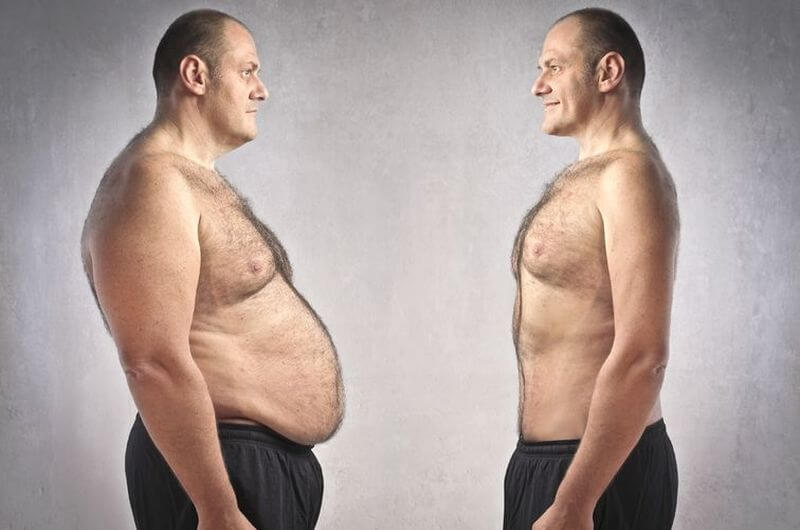
The study I cited earlier conducted at the Charles R. Drew University of Medicine and Science also investigated the relationship between total testosterone levels and body fat levels.
They found that testosterone levels were strongly correlated with leanness, which means that the higher your testosterone levels are, the leaner you’re going to naturally be.
Unlike the counterfactual findings relating to muscle growth, this effect was seen in differences well within the physiological normal ranges (differences of just 100 to 200 ng/dL significantly impacted total body fatness).
To wit, the difference in body composition between men at 600 and 300 ng/dL was staggering–the latter group was, on average, 36% fatter than the former.
The exact mechanisms underlying these observations haven’t been fully teased out yet, but research does show that testosterone can suppress the creation of fat cells and low-testosterone has also been identified as a contributing factor to obesity.
The 4 Best Ways to Boost Your Testosterone Naturally

Alright.
We’ve reviewed how testosterone impacts both your muscle and fat levels and we’ve set some realistic expectations as to what is and isn’t possible without drugs.
Let’s now talk about how to increase testosterone naturally.
There are several natural, science-based strategies you can use to boost your testosterone, and, depending on your circumstances, the overall effects on your general health and well-being can be negligible or significant.
If you’re currently doing most of what we’re going to cover, you obviously don’t have much room for improvement.
If you’re not, however, you do, and the resulting physical and mental/emotional effects can be quite dramatic.
1. How to Use Your Diet to Boost Your Testosterone Levels
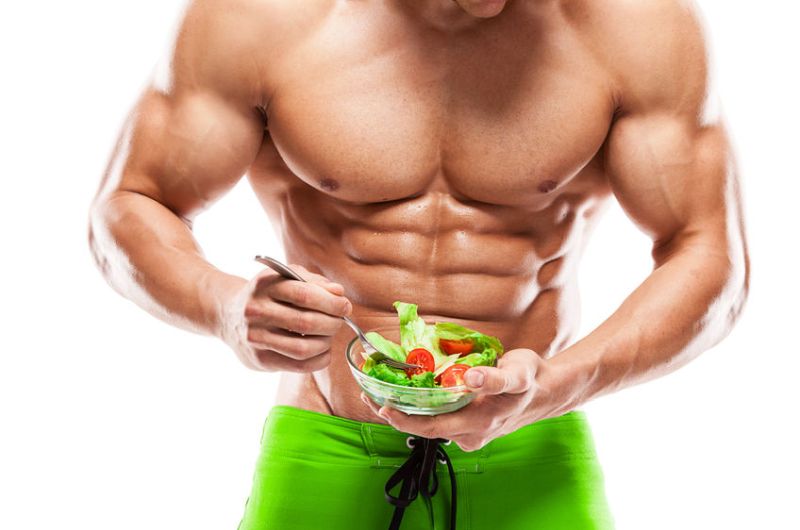
You’ve probably heard that some diets are more “anabolic” than others, and there’s truth there.
Your eating habits have a profound effect on your testosterone levels.
Where many testosterone “gurus” go off the rails, though, is with their actual diet recommendations.
The worst of them promote “tricks” and “hacks” like eating more of individuals foods ranging from the mundane (eggs) to the obscure (Brazilian nuts).
Most, though, are staunchly high-fat and low-carb. That, they say, is the real “secret” to maximizing testosterone production.
Well, ironically, the exact opposite is true.
Let’s find out why…
How Dietary Fat Intake Affects Testosterone Levels
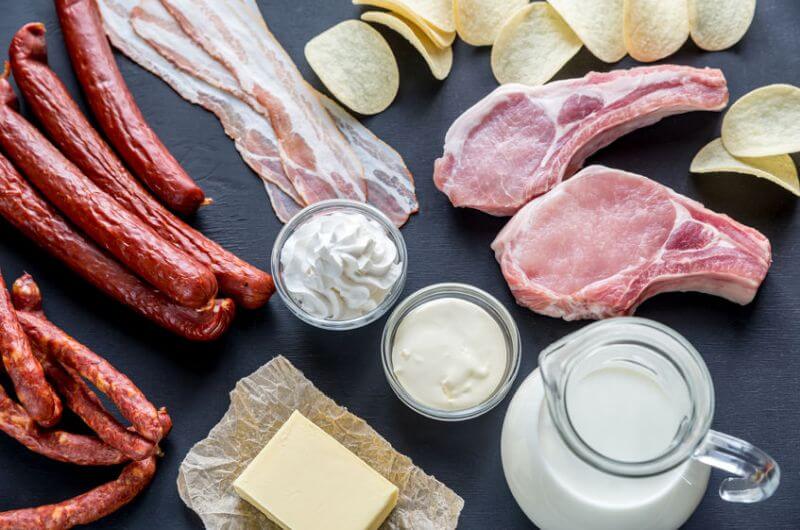
The body needs a certain amount of dietary fat to maintain optimal health and performance. There’s no denying that.
If you don’t get enough fat in your diet, a whole host of physiological processes become compromised, including hormone production.
That’s why the Institute of Medicine recommends that adults get 20 to 35% of their daily calories from dietary fat.
One thing many people don’t consider, though, is those percentages were established for the average sedentary person, who burns a lot less energy than those of us that exercise regularly (and especially those of us with above-average levels of lean mass).
For example, a 190-pound sedentary man with a normal amount of muscle mass would need to eat about 2,000 calories per day to maintain his body weight.
The IoM, then, says he would need 45 to 80 grams of fat a day. That’s reasonable.
Let’s look at me, though:
I weigh 192 pounds, I lift weights for four to six hours and do about 1.5 hours of HIIT cardio per week, and I have about 45 more pounds of muscle than the average 190-pound dude.
Thus, my total daily energy expenditure is quite a bit higher and I need to eat about 3,000 calories per day to maintain my body weight.
Now, if I were to blindly apply the IoM’s percentages, my fat intake would soar to 65 to 115 grams a day.
But do I really need that much more fat just because I’m muscular and exercise regularly?
No.
Exercise improves fat metabolism but doesn’t dramatically increase our need for dietary fat.
Now, what does all that mean for dietary fat and testosterone?
Well, switching from a low-fat to a high-fat diet can boost testosterone levels—but not by much.
For example, one study found that men who got a whopping 41% of their daily calories from fat had just 13% more testosterone than men who got only 18% of their daily calories from fat.
Another study conducted a decade earlier demonstrated similar findings.
So that means that, strictly speaking, eating a lot of dietary fat is “better” for increasing testosterone levels, but it’s not so exciting when you consider that:
- Increasing your testosterone levels by relatively small amounts isn’t going to do much of anything, and certainly isn’t going to help you build muscle faster.
- If you eat that much fat, you’re going to have to restrict your carbs, which will suppress your T levels.
Which brings me to my next topic…
How Carb Intake Affects Testosterone Levels

If you exercise regularly and eat even a halfway sensible diet, the carbs you eat are going to affect your testosterone levels a lot more than the fat.
For example, a study conducted by scientists at the University of North Carolina found that, when combined with daily exercise, a low-carb diet raised resting cortisol levels and reduced free testosterone levels.
Similar results were seen in another study, conducted about twenty years earlier.
How does that work, exactly?
Well, there’s an inverse relationship between cortisol and testosterone, which means that the higher your cortisol levels are, the lower your testosterone levels will be.
Thus, anything that dramatically and chronically raises cortisol levels (like calorie restriction, overtraining, high levels of stress, and low-carb dieting) will also dramatically and chronically lower your T levels.
This is one of the many reasons I recommend a high-carb diet if you’re very physically active–it helps keep cortisol levels low and thus testosterone levels high.
The mechanisms in play here are simple:
If you eat a high-carb diet, your insulin levels will be generally higher than if you were going low-carb, and insulin lowers cortisol levels.
So, in a sense, a high-carb diet allows you to train hard without paying the price of abnormally high cortisol levels putting the kibosh on your testosterone production.
A high-carb diet is more anabolic than low-carb for other reasons as well, but that’s another discussion.
The bottom line is this:
If you’re physically active and care about your health, performance, and results–and especially if you lift weights regularly–you’re going to do far better eating a lot of carbs than a little.
How Protein Intake Affects Testosterone Levels
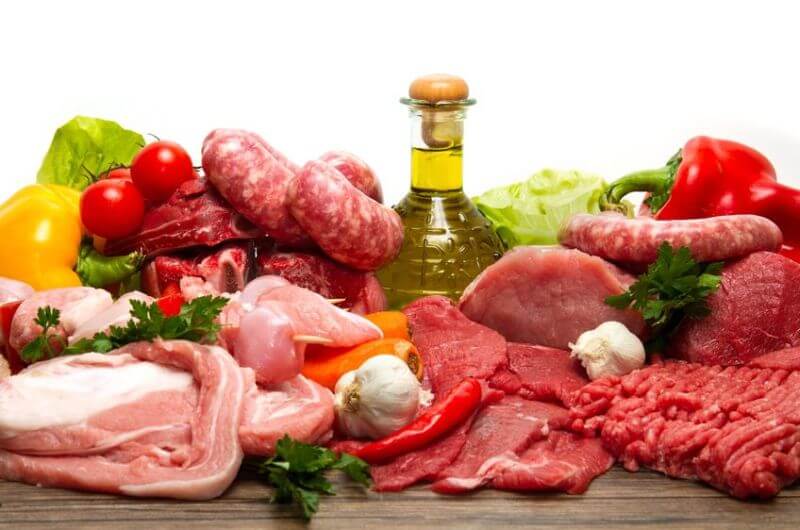
This section of the article will be short and to the point:
A high-protein diet is good for a lot of reasons, but it doesn’t affect testosterone production.
That’s what scientists from the College of New Jersey found in a study conducted with twenty-three experienced collegiate weightlifters.
The subjects were separated into three different groups:
- 1 to 1.4 grams of protein per kilogram of body weight
- 1.6 to 1.8 g/kg
- >2 g/kg
After twelve weeks, the differences in testosterone levels were negligible.
So, while you should make sure to eat enough protein, know that it won’t improve your testosterone levels.
How Energy Balance Affects Testosterone Levels
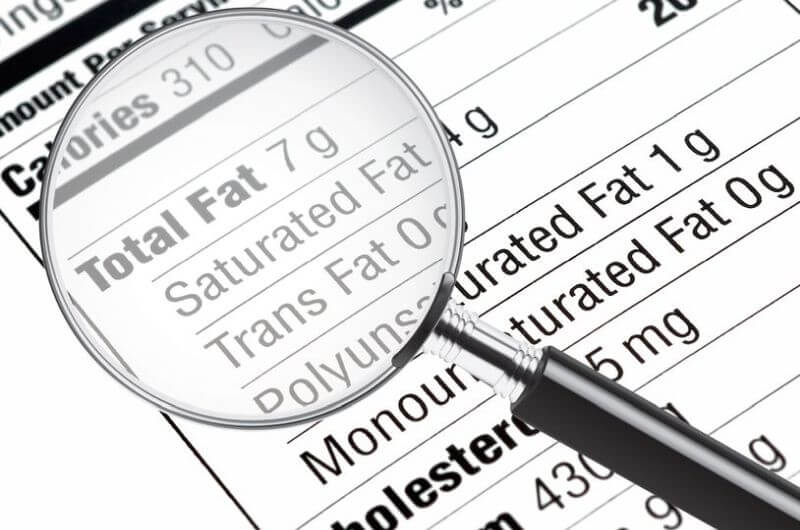
The relationship between the amount of energy you consume and burn is referred to as “energy balance.”
When you eat less energy than burn, you’re in what’s called a state of “negative energy balance” or a “calorie deficit.”
This results in weight loss.
On the flip side, when you consume more energy than you burn, you’re in a state of “positive energy balance” or a “calorie surplus.”
This results in weight gain.
[Read: How Many Calories You Should Eat (with a Calculator)]
There are hormonal effects to calorie deficits and surpluses as well.
Namely, a calorie deficit lowers testosterone levels, but they return to normal once the deficit is erased (once energy intake is increased to equal or exceed expenditure).
My point isn’t that you should avoid calorie deficits at all costs, of course. If you want to lose fat, you’re going to have to restrict your calories.
What you want to avoid, however, is “accidentally” staying in a slight calorie deficit (so slight that fat loss is too minimal to be noticed) for many months or even years as a result of mild, chronic undereating.
Nor do you want to do what many people do, which is binge on the weekends and then heavily restrict calories 5 to 6 days per week to try to “undo” the damage.
Instead, you want to have a good idea of how much energy you’re burning every day and your default diet should consist of or less that many calories.
How Micronutrients Affect Testosterone Levels

Don’t listen to the deranged “IIFYMers” gloating over their abs while eating handfuls of Pop Tarts and ice cream every day.
The foods you choose to eat matter. A lot.
The reason for this is your body needs a lot more than just “macros” to stay healthy and vital and perform optimally. It also needs a large number of vitamins, minerals, and other micronutrients.
Thus, it’s no surprise that certain micronutrients play vital roles in supporting testosterone production.
For example, zinc, vitamin D, and magnesium deficiencies are known to suppress testosterone production, and cruciferous vegetables contain a substance known as indole-3-carbinol, or “I3C,” which can reduce “bad” estrogen levels and thereby help maintain optimal testosterone levels.
The bottom line is this:
If you want to help your body produce as much testosterone as possible, you want to eat a diet rich in micronutrients.
You should consider supplementing with a good multivitamin as well (I do).
2. How to Use Your Body Composition to Boost Your Testosterone Levels
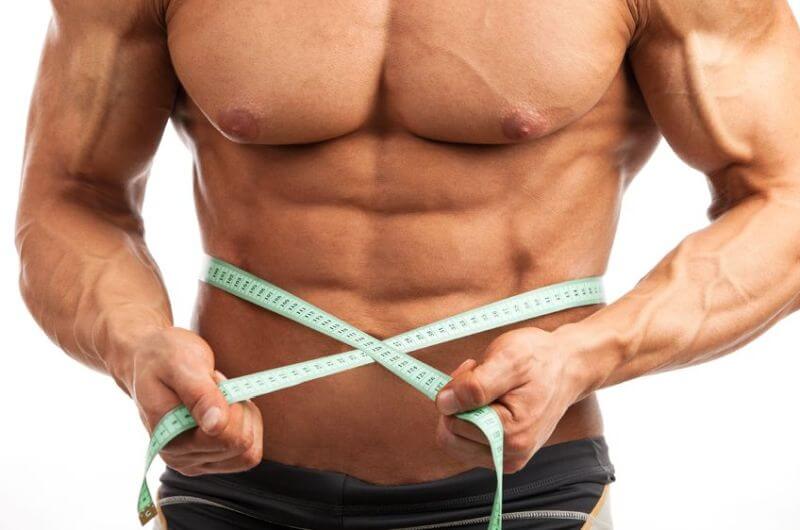
Research shows that as body fat levels rise, free testosterone falls and estrogen increases, which is conducive to further fat gain.
This is why higher levels of body fat are generally associated with lower levels of testosterone.
And this is why I recommend that men with more than 15% body fat focus first on reaching around 10% body fat before “bulking” to gain muscle.
For women, a safe “cutoff” for body fatness is about 25% body fat.
[Read: How to Calculate Your Body Fat Percentage Easily & Accurately]
If you do that, you’ll not only support your body’s testosterone production, you’ll look better and gain muscle faster as well.
3. How to Use Exercise to Boost Your Testosterone Levels
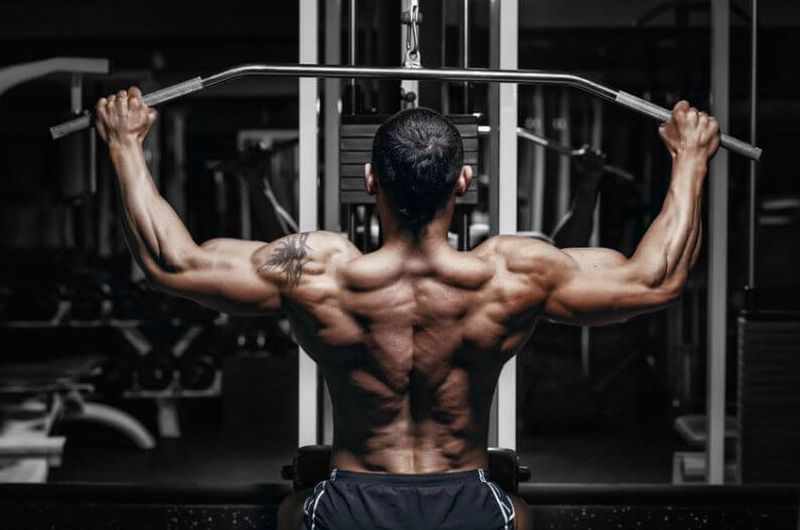
Most people know that exercise can raise testosterone levels.
What they don’t know, though, is it can tank your T levels as well.
It all comes down to what type of exercise you do and how much you do of it–and the worst choice is doing a ton of cardio.
This is bad for many reasons, not the least of which being the fact that it can greatly elevate resting cortisol levels, which in turn depresses testosterone levels.
And if you really want a problem, combine a large amount of cardio with a large calorie deficit (as many people do). The results can be quite catastrophic.
Now, that isn’t to say that all cardio is bad, of course. You just need to know how much is too much.
[Read: How Much Cardio You Should Do (and How Much Is Too Much)]
Now, if you want to have healthy hormone levels and a lean, muscular, and athletic physique, then the type of exercise you want to focus on is resistance training.
Nobody will argue that lifting weights helps you build muscle, but did you know that it also supports testosterone production?
Not all forms of resistance training are equal, though, both in terms of muscle building and hormone optimization.
If you want to get the most out of your time in the gym, you want to…
1. Focus on compound exercises like the squat, deadlift, bench press, and military press.
These exercises elicit larger hormonal responses than the wimpy isolation exercises you see most people doing.
2. Follow a workout routine that combines traditional strength and bodybuilding training.
This combination of training methodologies is the perfect way to get the most muscle and the most testosterone for your mileage.
The low-rep, high-weight work you do to build strength is also vital for building muscle, but pure strength programs tend to be low-volume (you don’t do many reps per week) because of how much stress they put on the body.
This isn’t optimal for maximizing muscle growth or boosting testosterone levels.
That’s why I recommend a “hybrid” approach that emphasizes heavy compound weightlifting but also includes isolation exercises to increase weekly volume without entering overtraining territory.
(That’s exactly how my weightlifting programs for men and women are laid out.)
3. Keep cardio to a minimum (do just enough to achieve your goals).
You already know that doing too much cardio, and especially when cutting, is a recipe for skinny fat.
If you want to get really lean, though, you’re probably going to have to do cardio simply to increase your energy expenditure so you can continue losing fat.
The good news, though, is you don’t have to do very much. For example, I never do more than two hours of cardio per week when cutting.
The reason I have to do a fraction of other people is I do high-intensity interval training, which not only helps you lose fat faster than steady-state cardio but raises T levels as well.
How Not to Boost Your Testosterone Levels:
Natural Testosterone Boosters

Natural testosterone boosters are all the rage these days.
Supplement companies love to make ’em and bodybuilders and fitness models love to shill for ’em.
If we’re to believe the hype, these pills and powders are every bit as effective as steroids and sure to transform us into ripped alpha males slathered in sex and sensuality.
Sadly, it just ain’t so.
There isn’t a single natural testosterone booster on the market that could deliver even a shadow of that promise.
The best you can get is a small and temporary increase in T levels, which, as you now well know, will do more or less nothing.
We’ve covered a lot in this article so I won’t linger here long, but just to give you an idea of why test boosters are so underwhelming, let’s take a look at three of the most common ingredients found in them:
- Tribulus terrestris
- ZMA
- D-aspartic acid
Multiple studies have proved that supplementation with Tribulus terrestris doesn’t affect testosterone levels, body composition or exercise performance. It’s a dud. End of story.
ZMA is a combination of zinc, magnesium and vitamin B6, and unless you’re deficient in zinc, studies show that ZMA doesn’t raise testosterone levels.
As for D-aspartic acid, research shows that supplementing with it can raise testosterone levels, but it’s unreliable and the effects are slight and temporary. In otherwise healthy men, the T-boosting benefits are gone within a month.
You’ll find many other ingredients as well, including horny goat weed, eurycoma longifolia jack, holy basil, velvet antler and saw palmetto, and the story is the same:
Each and every one is either unproven or ineffective.
The unfortunate truth is this:
If a testosterone booster contains 100% natural ingredients, it won’t do enough to matter.
And if you’ve taken a “natural” T booster that made a significant difference, it was the placebo effect or wasn’t as natural as you thought.
(Many shady supplement companies slip small amounts of cheap anabolic steroids into their “natural” testosterone boosters to make them actually do something.)
The Bottom Line on Testosterone

Testosterone is an incredibly important hormone.
It directly impacts our quality of life in many ways and factors heavily in our fitness and performance. It’s worth much of the attention it gets.
What many people don’t want to hear, though, is there are no quick fixes for raising and maintaining optimal testosterone levels.
High T levels have to be earned. They’re one of the many rewards for healthy living, which looks like this:
- Eat enough calories
- Eat plenty of nutritious foods (and supplement with a well-formulated multivitamin)
- Balance your macronutrients properly
- Stay lean
- Do regular resistance training
- Don’t overdo the cardio
- Get enough sleep
Do all that and you’ll look and feel great and have the highest testosterone levels you can naturally achieve.
What’s your take on testosterone? Have anything else to share? Let me know in the comments below!
Scientific References +
- Hackney AC, Hosick KP, Myer A, Rubin DA, Battaglini CL. Testosterone responses to intensive interval versus steady-state endurance exercise. J Endocrinol Invest. 2012;35(11):947-950. doi:10.1007/BF03346740
- Kraemer WJ, Fray AC, Warren BJ, et al. Acute hormonal responses in elite junior weightlifters. Int J Sports Med. 1992;13(2):103-109. doi:10.1055/s-2007-1021240
- Helms ER, Fitschen PJ, Aragon AA, Cronin J, Schoenfeld BJ. Recommendations for natural bodybuilding contest preparation: Resistance and cardiovascular training. J Sports Med Phys Fitness. 2015;55(3):164-178. https://www.ncbi.nlm.nih.gov/pubmed/24998610. Accessed January 8, 2020.
- Kraemer WJ, Fray AC, Warren BJ, et al. Acute hormonal responses in elite junior weightlifters. Int J Sports Med. 1992;13(2):103-109. doi:10.1055/s-2007-1021240
- Hansen S, Kvorning T, Kjær M, Sjøgaard G. The effect of short-term strength training on human skeletal muscle: The importance of physiologically elevated hormone levels. Scand J Med Sci Sport. 2001;11(6):347-354. doi:10.1034/j.1600-0838.2001.110606.x
- Hackney AC, Moore AW, Brownlee KK. Testosterone and endurance exercise: Development of the “exercise-hypogonadal male condition.” Acta Physiol Hung. 2005;92(2):121-137. doi:10.1556/APhysiol.92.2005.2.3
- Michnovicz JJ, Bradlow HL. Altered Estrogen Metabolism and Excretion in Humans Following Consumption of Indole-3-Carbinol. Nutr Cancer. 1991;16(1):59-66. doi:10.1080/01635589109514141
- Maggio M, De Vita F, Lauretani F, et al. The interplay between magnesium and testosterone in modulating physical function in men. Int J Endocrinol. 2014;2014. doi:10.1155/2014/525249
- Pilz S, Frisch S, Koertke H, et al. Effect of vitamin D supplementation on testosterone levels in men. Horm Metab Res. 2011;43(3):223-225. doi:10.1055/s-0030-1269854
- Rossow LM, Fukuda DH, Fahs CA, Loenneke JP, Stout JR. Natural bodybuilding competition preparation and recovery: A 12-month case study. Int J Sports Physiol Perform. 2013;8(5):582-592. doi:10.1123/ijspp.8.5.582
- Mäestu J, Eliakim A, Jürimäe J, Valter I, Jürimäe T. Anabolic and catabolic hormones and energy balance of the male bodybuilders during the preparation for the competition. J Strength Cond Res. 2010;24(4):1074-1081. doi:10.1519/JSC.0b013e3181cb6fd3
- Fernandez-Real J-M, Ricart W, Casamitjana R. Lower cortisol levels after oral glucose in subjects with insulin resistance and abdominal obesity. Clin Endocrinol (Oxf). 1997;47(05):583-588. doi:10.1046/j.1365-2265.1997.3351120.x
- Boden G, Sargrad K, Homko C, Mozzoli M, Stein TP. Effect of a low-carbohydrate diet on appetite, blood glucose levels, and insulin resistance in obese patients with type 2 diabetes. Ann Intern Med. 2005;142(6). doi:10.7326/0003-4819-142-6-200503150-00006
- Costa RJS, Jones GE, Lamb KL, Coleman R, Williams JHH. The effects of a high carbohydrate diet on cortisol and salivary immunoglobulin A (s-IgA) during a period of increase exercise workload amongst olympic and ironman triathletes. Int J Sports Med. 2005;26(10):880-885. doi:10.1055/s-2005-837467
- Hoogeveen AR, Zonderland ML. Relationships between testosterone, cortisol and performance in professional cyclists. Int J Sports Med. 1996;17(6):423-428. doi:10.1055/s-2007-972872
- Anderson KE, Rosner W, Khan MS, et al. Diet-hormone interactions: Protein/carbohydrate ratio alters reciprocally the plasma levels of testosterone and cortisol and their respective binding globulins in man. Life Sci. 1987;40(18):1761-1768. doi:10.1016/0024-3205(87)90086-5
- Lane AR, Duke JW, Hackney AC. Influence of dietary carbohydrate intake on the free testosterone: Cortisol ratio responses to short-term intensive exercise training. Eur J Appl Physiol. 2010;108(6):1125-1131. doi:10.1007/s00421-009-1220-5
- Hämäläinen E, Adlercreutz H, Puska P, Pietinen P. Diet and serum sex hormones in healthy men. J Steroid Biochem. 1984;20(1):459-464. doi:10.1016/0022-4731(84)90254-1
- Dorgan JF, Judd JT, Longcope C, et al. Effects of dietary fat and fiber on plasma and urine androgens and estrogens in men: A controlled feeding study. Am J Clin Nutr. 1996;64(6):850-855. doi:10.1093/ajcn/64.6.850
- Melanson EL, MacLean PS, Hill JO. Exercise improves fat metabolism in muscle but does not increase 24-h fat oxidation. Exerc Sport Sci Rev. 2009;37(2):93-101. doi:10.1097/JES.0b013e31819c2f0b
- Corona G, Monami M, Rastrelli G, et al. Testosterone and Metabolic Syndrome: A Meta-Analysis Study. J Sex Med. 2011;8(1):272-283. doi:10.1111/j.1743-6109.2010.01991.x
- Singh R, Artaza JN, Taylor WE, et al. Testosterone inhibits adipogenic differentiation in 3T3-L1 cells: Nuclear translocation of androgen receptor complex with β-catenin and T-cell factor 4 may bypass canonical Wnt signaling to down-regulate adipogenic transcription factors. Endocrinology. 2006;147(1):141-154. doi:10.1210/en.2004-1649
- Storer TW, Magliano L, Woodhouse L, et al. Testosterone dose-dependently increases maximal voluntary strength and leg power, but does not affect fatigability or specific tension. J Clin Endocrinol Metab. 2003;88(4):1478-1485. doi:10.1210/jc.2002-021231
- Hartgens F, Kuipers H. Effects of androgenic-anabolic steroids in athletes. Sport Med. 2004;34(8):513-554. doi:10.2165/00007256-200434080-00003
- West DWD, Phillips SM. Associations of exercise-induced hormone profiles and gains in strength and hypertrophy in a large cohort after weight training. Eur J Appl Physiol. 2012;112(7):2693-2702. doi:10.1007/s00421-011-2246-z
- Bhasin S, Woodhouse L, Casaburi R, et al. Testosterone dose-response relationships in healthy young men. Am J Physiol - Endocrinol Metab. 2001;281(6 44-6). doi:10.1152/ajpendo.2001.281.6.e1172
- Forbes GB. The effect of anabolic steroids on lean body mass: The dose response curve. Metabolism. 1985;34(6):571-573. doi:10.1016/0026-0495(85)90196-9
- Ramasamy R, Wilken N, Scovell JM, Kovac JR, Lipshultz LI. Hypogonadal symptoms are associated with different serum testosterone thresholds in middle-aged and elderly men. Urology. 2014;84(6):1378-1382. doi:10.1016/j.urology.2014.07.049










